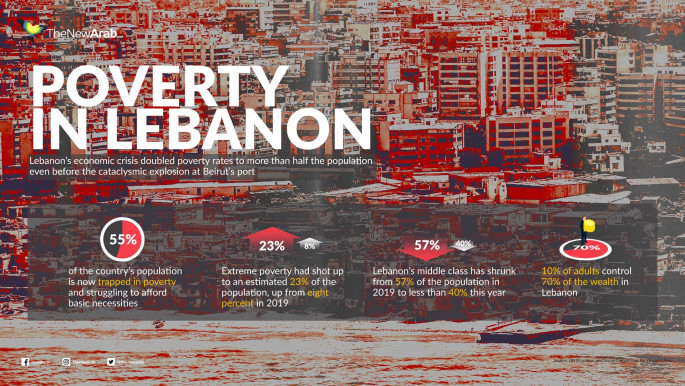Life in Lebanon could return to 'normal' by summer, minister says, as Covid-19 numbers drop
Lebanon's Health Minister Hamad Hasan said on Sunday that he hopes "normal life" will resume by summer, with the Covid-19 infection rate appearing to slow, despite warnings about reopening too early from health officials.
Hasan told Al-Jadeed TV that the positivity rate of cases to tests dropped from a peak of 22 percent in February to 11 percent at the end of April.
Despite this, Lebanon reported 930 cases of the disease and 24 deaths on Saturday.
Hundreds of people remain in a critical condition in ICU, according to the 961 news site.
The government expects things to improve with the launch of a vaccination campaign with the most vulnerable being inoculated. At least 130,000 doses of the AstraZeneca vaccine were expected to arrive in Lebanon on Sunday with a further 900,000 shots from Pfizer due in May and June.
The minister asked people to remain cautious and continue to follow social distancing rules.
"These figures have lowered the risk factor from level four to level three," Hasan said. "We hope that in June to reach level two so that we can gradually return to normal life."
According to the Lebanese ministry of information, the average number of new infections reported each day in Lebanon fell by more than 1,200 over the last three weeks.
Despite the positive numbers, there are still warning signs for the country.
Lebanon has already started to reopen commercial activities despite the World Health Organisation saying this should not happen unless the test positivity rate is consistently below 5 percent.
Less than a quarter of the adult population have registered on the health ministry's vaccination platform and only 3.6 percent of the adult population was fully vaccinated as of the end of April.
Another issue with the vaccination campaign was the constraints in availability to non-Lebanese.
Human Rights Watch warned in April that the rollout was at risk of marginalising refugees and migrant workers who make up a third of the crisis-hit country's population.
"Only 2.86 percent of those vaccinated and 5.36 percent of those registered to receive vaccinations are non-Lebanese," said HRW researcher Nadia Hardman.
In February, the vaccination campaign was engulfed by scandal after the World Bank threatened to suspend funding for Lebanon's pandemic recovery following accusations that 16 government ministers had jumped the queue to receive jabs. The institution allocated $34 million to innoculate two million of Lebanon's six million inhabitants.
The health ministry allowed the private sector to import additional vaccines to speed up the process.
The pandemic piled new misery on a country already grappling with its worst economic crisis since the 1975-1990 civil war.
Since the pandemic began, 528,208 people were infected and 7,324 died from coronavirus-related deaths in Lebanon.
![Lebanon vaccination [GETTY] Lebanon vaccination [GETTY]](/sites/default/files/styles/large_16_9/public/media/images/396EC0B2-F4FD-4B78-AD6D-035AFDED5FAF.jpg?h=d1cb525d&itok=pssRpSHn)



